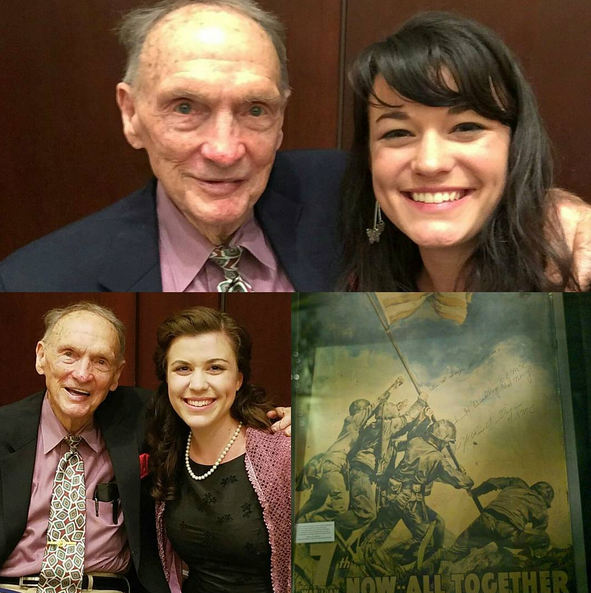Touching History: Why Scars Matter
/He that shall live this day, and see old age,
Will yearly on the vigil feast his neighbours,
And say "To-morrow is Saint Crispian."
Then will he strip his sleeve and show his scars,
And say "These wounds I had on Crispin's day."
Old men forget; yet all shall be forgot,
But he'll remember, with advantages,
What feats he did that day.”
William Shakespeare, “Henry V”
Last year I sat with a crusty, 93 year-old Marine from the Battle of Iwo Jima. I asked him frank questions about Iwo. He was Irish. He answered me back frankly. In more ways than one, the battle was still with him.
“I have some of the island still in me.” O’Malley told me in a thick Massachusetts accent. Extending one of his hands to me, aged, but massive and strong, he said, “See those two black spots? That’s sand from the beaches of Iwo Jima.” The Marine allowed me to touch the spots with my fingers. A doctor had once offered to remove them, he told me, but O’Malley had responded with a firm no! “I earned that!” For 73 years he had carried those pieces of black volcanic ash in his hand, a memory of the most defining days of his life. There was no way they would be removed now.
This wasn’t the first time a veteran has showed me his scars. Once, another Marine friend had taken my hand and put it to his temple. “Feel that,” he said. “That’s shrapnel from the jungles Nam.”
And at a monthly breakfast group one morning, an Army vet stretched both his arms out over the table and pointed out to me the lines he had running up from his wrists to elbows, “June 6th, 1944, on Omaha Beach,” he said matter-of-factly. “I held my arms up to cover my face from the bullets. Good thing I did because otherwise my face wouldn’t look too pretty.”
“It never looked pretty,” kidded another D-Day survivor from across the table.
As most kids are, I think, growing up I was fascinated by scars. My brothers [and sisters] always hoped our scratches from outdoor play would turn into scars, and when they didn’t, we solved that problem by drawing them in with permanent marker. Maybe not the best idea. But it sure looked good.
As adults, we each carry internal scars of battles we’ve fought. Some of them we are proud of, others we are content to keep hidden deep in our hearts.
But why do scars matter?
I think Shakespeare hits the nail on the head in Henry V.
“Then will he strip his sleeve and show his scars / And say "These wounds I had on Crispin's day.””
There is nothing like an external scar to show the world that you fought hard and conquered. In the Japanese culture, there is a practice called, kintsugi: A piece of broken pottery is repaired with gold, not only renewing the life in it, but adding value by celebrating and showing pride in it’s “scars.”
I consider it a treasured privilege to be shown a veteran’s battle scars. Something very personal is transferred. And I become custodian to a moment from 75 years in the past.
When I took that crusty Marine’s hand and felt his scars, I could feel a battle that took place 51 years before I was even born. I was touching history.




























